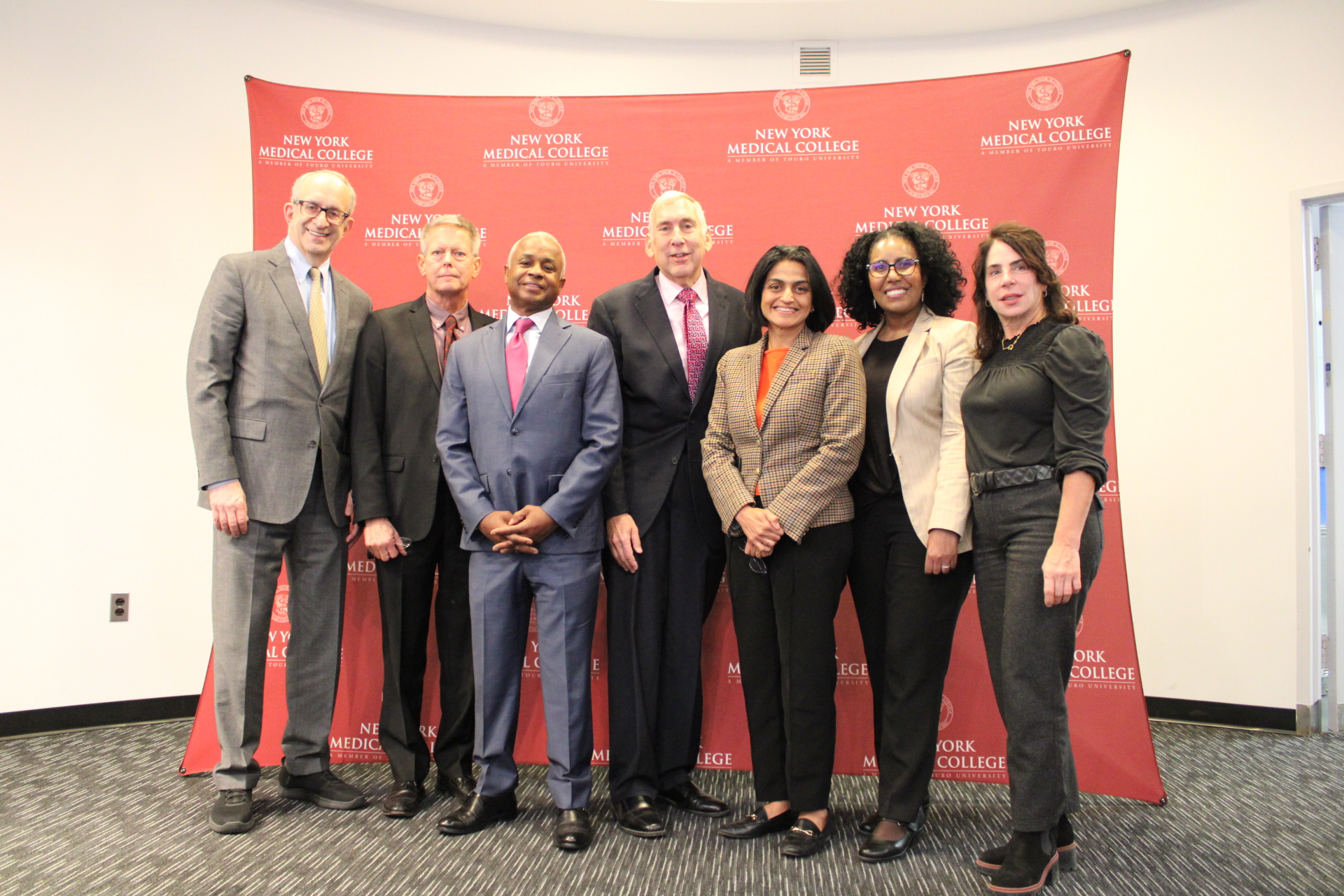NYMC Marks 150 Year Academic Affiliation with NYC Health+Hospitals/Metropolitan with Celebration Symposium
The Partnership is the Longest Affiliation Between a Private Medical School and a Municipal Public Hospital in American Medicine

New York Medical College (NYMC) and NYC Health+Hospitals/Metropolitan marked their historical 150-year academic affiliation with a Celebration Symposium at Metropolitan on November 19. NYMC and Metropolitan have been affiliated since the hospital's founding in 1875, making this the longest affiliation between a private medical school and a municipal public hospital in American medicine.
“This long-standing academic affiliation is a win for everyone involved, including the students, residents, fellows, faculty, hospital staff, and, most importantly, our patients,” said Gregory Almond, M.D., M.P.H. ’00, M.S. ’00, vice chancellor for external academic relations at NYMC, who organized the symposium. “This anniversary is a truly remarkable achievement, which has benefited numerous students who become residents, residents who become providers, providers who become academic physicians and leaders and researchers, which allows a facility like Metropolitan to provide the best quality of care to patients.”
“Our 150-year symposium highlighted the strength and stability of the partnership between New York Medical College and Metropolitan Hospital—an alliance sustained across generations of leaders who were agents of change in public health,” said Anitha Srinivasan, M.D., M.P.H., FACS, chief medical officer at Metropolitan and vice dean for NYMC at Metropolitan and associate professor of surgery. “I am thankful to the current leaders of both institutions, New York Medical College Chancellor and CEO Edward C. Halperin, M.D., M.A., and NYC Health + Hospitals/Metropolitan, Chief Executive Officer, Julian S. John for continuing to honor and preserve this historic relationship.”
To celebrate the important milestone, the symposium’s featured speakers highlighted the rich history of academic work and scientific and medical advances over the course of the past 150 years.
Dr. Halperin opened the symposium with an interesting and informative talk on the battle against tuberculosis at Metropolitan, which for many years had the largest tuberculosis ward in the U.S., as well as other New York public hospitals, through the late 19th century and early 20th century. Through historical photos, illustrations, and video, he also traced the origins of Metropolitan and its relationship with NYMC.
Maria Castaldi, M.D., professor of surgery at NYMC and chief quality officer at Metropolitan, spoke of the progress in breast cancer treatment; Vani Dandolu, M.D., M.P.H., M.B.A., shared the evolution of hysterectomy technique over the past 100 years; and Mahrukh Bamji, M.D, professor of pediatrics at NYMC and chair of the Department of Pediatrics at Metropolitan, discussed the history of perinatal HIV infection, which over the past 20 years has dropped to a rate of less than half a percent.
Samrina Kahlon, M.D., associate professor of medicine at NYMC and vice chair of patient safety and quality at Metropolitan, described the advancements in medicine over the past 150 years, which evolved from surgeons’ use of a bone saw with no antibiotics and no anesthesia during the Civil War to the use of surgical robots today, highlighting the many medical breakthroughs of the past century, including the developments of the pacemaker, antibiotics, gene therapy, and now the use of artificial intelligence (AI) in medicine.
“But in the middle of it all, the robots, the AI, the miracles, we must remember something timeless,” said Dr. Kahlon. “Technology heals the body, but empathy and compassion heal the person, the patient. We have seen patients survive on machines, but recover through human connection, a hand held during fear, a moment a nurse cracks a perfect joke to calm a patient, a resident who takes an extra two minutes to listen to a patient. No robot can replicate it, no algorithm can measure it. Compassion and empathy are the heartbeats of medicine.”

